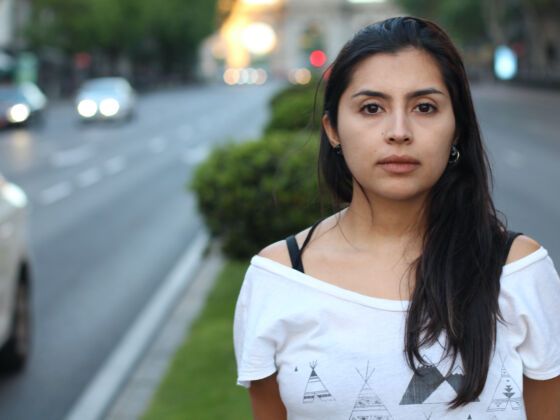MY FAMILY has called the Chihuahuan Desert home for a very long time. On a recent trip home I asked my grandmother how long, and she wasn’t exactly sure, but the rumor was that my great-great-great grandfather was a Spaniard who married an indigenous woman and that is how our clan started. I’ve always felt the desert was in my blood, encoded in my DNA and running through my veins. As a child I would look up at the clouds in the endless blue sky or watch a sunset exploding behind those barren rocky mountains and imagine that my great-grandmother had done the exact same thing.


I roamed the same streets that they had roamed on both sides of the border. Even then, Ciudad Juarez was considered a dangerous place, but all I have is fond memories of a multicultural, transnational childhood. For me Juarez meant culture, music, markets, and a bustling city that, though only seperated by one mile of distance and a bridge (and now a fence), was a world apart from my home in sleepy El Paso. I have always had a strong sense of place because I deeply belong to my landscape, which I know is a rare privilege in 21st-century America. It is a gift that I am very grateful for.
There is, however, another not so welcome tradition that has been handed down to me. In this desolate and tough landscape extreme masculinity reigns, and women are often viewed as mere extensions of their men. Growing up in this environment as a girl was often confusing, as I received mixed messages on what it meant to become a woman. On the one hand, I am the daughter of progressive parents, a US citizen, and a Jew, and was told that the most important thing I could do was to get an education. I was encouraged to study hard and get good grades with the expectation that I would at least obtain a master’s degree, a career, and somehow leave this world a better place.
On the other hand, I come from a family of Northern Mexican descent and a culture that has very clear and defined gender roles. I can’t tell you how many times I have been told to dress sexier (but not too sexy) or act more feminine by the well-intentioned women (my progressive mother included) in my life. When I took an interest in cooking, they all exclaimed “now you can get married!” which irritated the hell out of me. I also saw how many of these beautiful, strong, talented women were treated by their husbands, and even as a child I knew this wasn’t right. I was being told that I had to be perfect: beautiful, intelligent, productive, a good cook, and take on suffering quietly in order to be a “good” woman.
I was 12 or 13 when I learned about the women of Juarez. They really weren’t women; they were mostly girls, only a few years older than myself, whose bodies had been dumped in the desert as if they were pieces of trash. There were hundreds of these bodies found (and I’m sure hundreds that have never been found), that were raped and desecrated with little regard for their personhood. My body was just beginning to change, and learning that this was happening right next door, in a place that I partially considered home, shook me to the core and made me reevaluate everything.
I was already struggling with puberty, hormones, and body image, but I can’t help but think this pushed me over the edge. Perhaps this seems melodramatic, because I cannot equate my suffering with that of the victims and their families, but in all of the speculation of who is to blame and what exactly is happening, I think we are ignoring how this affects many of the young women of this region (even middle-class, pale-skinned US citizens).
When I realized that the body I am meant to have is so stereotypically female, lacking even a hint of androgyny, I felt betrayed. I was threatened when I should have been celebrating my womanhood, and no matter how hard I tried to change my shape, I could not get rid of my breasts or hips. Suddenly, men were commenting and undressing me with their eyes. No one said anything, because this is perfectly acceptable male behavior. In a place where men can get away with killing poor female factory workers, commenting on a woman’s body (even if she is a minor) seems pretty harmless.
I would like to suggest that we start a dialogue with young people, especially in communities like mine, about gender and violence against women. I think we should be talking about this in every school and community center. This is not an issue that only affects “them,” those poor, dark girls who must work in a factory at 15. It affects anyone with a female body. What is happening in Juarez is extreme, but it has been permitted by the culture we live in, and until we all make an effort to change this sort of thing will continue.
The last time I saw my grandmother she was lamenting the violence that is destroying her hometown and wondered what the “real men” like her father would do in this situation. I didn’t have the heart to tell her that what we are living now is at least partially an inheritance from them.
One Billion Rising, a worldwide event for which participants in nearly 200 countries have signed up, is this Thursday, Feb 14. Its purpose is to raise awareness and to unite women and men in the struggle to end violence against women.
[Note: This post was previously published in its original form here.]